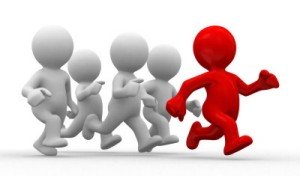|
Define MotivationA Key Aspect Of Change Leadership People
How we define motivation and how we understand and work with the different types of motivation is an integral aspect of leading and managing people through change.
Goals are successfully achieved as a result of focused action – which is exactly what we need to ensure a successful change management initiative. Understanding the drivers that define motivation is an essential for activating the necessary goal-oriented behaviour.
Leadership and motivation The emotional dimension of leadership is one of the 3 key elements of what is involved in successfully leading and managing change.
The style of leadership that is needed in a major change management initiative is a leadership that understands how to define motivation factors in ways that connect with people and that directly addresses what is important to them.
Culture and motivation Another aspect of how we define motivation is to understand the underlying [and often unconscious] psychological processes that determine individual and attitudes. In an organisational environment "collective attitude" will be to a very large extent shaped and defined by organisational cultures. Motivational drivers
An example of this is when we think about what we want and about what we actually have and we feel a discomfort or a tension.
Gaps are also the driver for disagreement between people. Where our internal drivers are different from others, then we will disagree with them and this gives rise to what we may call "disagreement gaps". Other gaps can arise over values and beliefs and goals gap.
Further Resources
Motivation in the workplace - People are motivated when they are inspired Motivation Theories - Getting people to take action Maslow's hierarchy of needs - A paradigm shift ERG Theory - Practical application to leading change Herzberg Motivation Theory - Satisfied and motivated Acquired Needs Theory - Goal seeking achievers Process theories of motivation - Personal needs drive behaviour Employee motivation techniques - How to achieve peak performance Myers Briggs Personality Types - Why so important Inspirational motivation - How to inspire your people in tough times Managing Personal Change - Resources HERE
|






